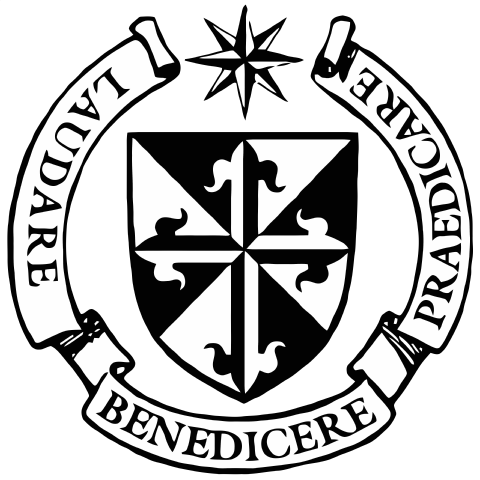Poverty, Chastity, Obedience
Mass of Solemn Profession
Whenever Our Lord Jesus Christ calls us to a more perfect life, he offers his own strong and virtuous soul as source and model for our holiness. After counseling the Rich Young Ruler to sell his possessions and give to the poor, he adds come, follow me (Mt 19:21). The Dominican nun, too, follows a way of intimate imitation of Christ. Her solemn vow of obedience implies an intention to keep the three evangelical counsels—poverty, chastity, and obedience—which are, in a special way, the virtues of Christ’s own soul.
How do poverty, chastity, and obedience shape the life of a Dominican nun? First, by shaping her very being. The counsels encompass all of human existence. By poverty a nun offers her possessions to God; by chastity she offers her own body; and by obedience she gives her intellect and will—the deepest parts of herself. That’s why Saint Thomas Aquinas says the vowed religious should be considered not just a sacrifice to God, but a holocaust.
Secondly, the observance of the evangelical counsels draws the nun more deeply into charity. The observance of poverty, for example, according to which we “hold all things in common,” as our Constitutions say, is not only motivated by charity but is also charity's first foundation. Poverty withdraws our affections from material possessions and more readily orients them to God. By poverty we are freed for true generosity, the kind of self-giving that once motivated Holy Father Dominic to sell all his books and feed the poor.
Chastity, which involves the renunciation of both the pleasures and cares of marriage, also leads the vowed religious woman toward the perfection of charity. It creates a fruitful space in her soul in which the exclusive, spousal union with Christ is rooted and grows. Indeed, chastity consecrated to Christ—as opposed to simple continence—is “an exceptional gift of grace.” It cannot be simply willed. To cooperate with this great gift, our Constitutions advise us to “cultivate close communion with God through intimate friendship with Christ”, especially by continual recourse to the Blessed Sacrament, scripture, and the Blessed Virgin.
Finally, the observance of the counsels also conforms the Dominican nun to Christ in a remarkable way. Obedience is “first among equals” in this regard. Like poverty and chastity, obedience constitutes a radical self-offering. It embraces not only the gift of our possessions and our body to God, but even of our soul and all its powers. As our Constitutions explain, “By this profession [of obedience], we imitate Christ in a special way, for He always submitted to His Father's will for the life of the world.” By obedience, therefore, the Dominican nun offers herself in the deepest way possible, namely, Christ's own way of loving surrender to the Father for the life of the world.
The evangelical counsels shape all aspects of the life of a Dominican nun and ultimately they shape her. Motivated by charity and leading into an ever deeper charity, the counsels are much more than a natural exercise in renunciation. Lived well, their end is deeper participation in the redeeming love of the crucified Christ who—poor, chaste, and obedient—offered himself for our salvation.

